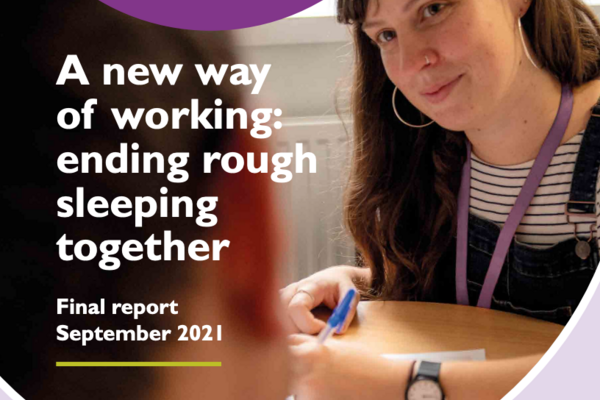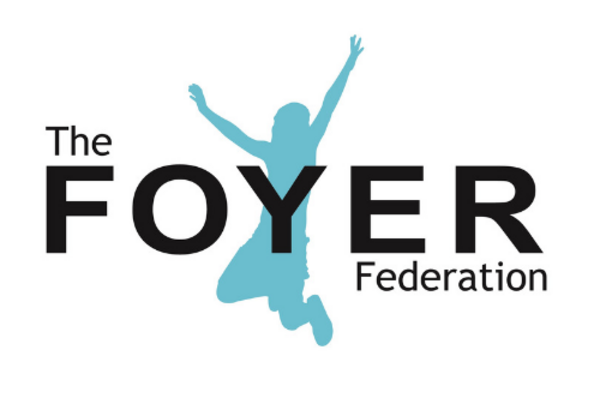
During May and June, we commenced our FOR Youth reviews with Foyers making progress in their journey to accreditation either by working towards their final Certification or gaining Certificated status.
FOR Youth reviews, held annually with Endorsed or Certificated services, include a reflection on how each Foyer has actioned its quality development plan, an updated SWOT analysis, insights into performance data, and a conversation about the Foyer’s current and future context. Foyers submit a review form along with their annual data set, which we use to create benchmarking data that’s shared with our whole network. The review is one of the real strengths of FOR Youth and improves the quality of the relationship between the Federation and our Foyer members.
So far this year we’ve completed five reviews and received 11 data submissions, from which we’ve already spotted early trends in Foyer performance. Reviews will be scrutinised by our Foyer Accreditation Panel, which sits at the end of July. We’re really excited by what we have seen so far and proud of the determination of Foyers to advance the quality and impact of their services.
Highlights from reviews include:
- Foyers strengthening their staff team and offer through Advantaged Thinking. For example, by using the approach to create a tool for “tracking the progress of a young person’s journey” or by developing staff skills, with one Foyer reporting that “building the team to be more Advantaged Thinking has put us in a much stronger position than we were last year”.
- Services using the FOR Youth Quality Development Plan to keep on a positive track. For example, one Foyer reflected on how the actions achieved from their QDP “positively influenced the Foyer Service Offer, strengthened the Foyer’s asset-based philosophy and helped us to evolve”. Another Foyer noted the practical use of the QDP as something that “supported the team to keep the plans and future ambitions during times when we’ve had numerous tasks”.
- Impacts from improved data collection supporting service monitoring, commissioner relationships and funding bids. As one Foyer concluded, “The improved Foyer Federation data set… is allowing the Foyer to capture outcomes better which are used in funding bids, renewal of contracts and published in the Foyer annual report.” A number of Foyers have been successful at securing contract extensions, including some with improved conditions to support the Foyer’s Advantaged Thinking ethos.
We have also been keenly following performance trends in Foyer data. With just over half the dataset submitted, covering more than 400 young people, we can already see some important themes to share:
- Length of stay is on the decline, down from 60 to 47 weeks, and staff attrition has increased from 8% to 14% reflecting increased pressures on support work, with caseload sizes rising to 12. While the number of staff trained in an asset approach has sustained a high level of 78%, the numbers trained in coaching has declined from 65% to only 36%, suggesting a need to source more opportunities in this area.
- The Foyer community has retained a similar age balance with 53% aged 16-18. The main changes have seen an increase in those from refugee and ESOL backgrounds, up from 8% to 15%, and in those with a diagnosed mental health issue (up by 10% to 43%) or substance misuse issue (up from 42% to 45%).
- Outcomes have seen a consistent increase in impact across all Theory of Change areas for young people leaving Foyers, with the biggest recorded progress in health which rose from 68% to 81% of young people, followed by social skills increasing from 76% to 85%. Personal development remains the top impact area, increased by 3% up to 91% of young people.
- Move-on destinations remain similar, with a slight increase of 2% to 48% moving on to their own tenancy or into university. In line with the above improvements, eviction rates have declined, falling from 19% to 12%. More young people are also likely to be in work or education on exit, rising from 40% to 51%. Reflecting this, more young people are also starting work during their stay (up by 7% to 37%) or taking up a new qualification (up by 16% to 36%).
To summarise
Foyers are under increased pressure from shorter lengths of stay, higher staff turnover, reduced coaching skills and more young people with mental health and substance misuse needs. Despite these pressures, Foyers are performing strongly with lower eviction rates, increased levels of young people making progress in housing, health, social skills, financial capability and personal development, and more young people taking up work and education, with 51% in one of these options on exit. It is clear that an Advantaged Thinking Foyer offer continues to equip young people to make a positive transition.
We look forward to sharing the final results of our FOR Youth reviews and data benchmarking process over the next few months.
If you would like to join our next FOR Youth cohort, commencing from October year, please get in touch with [email protected] for a conversation.





